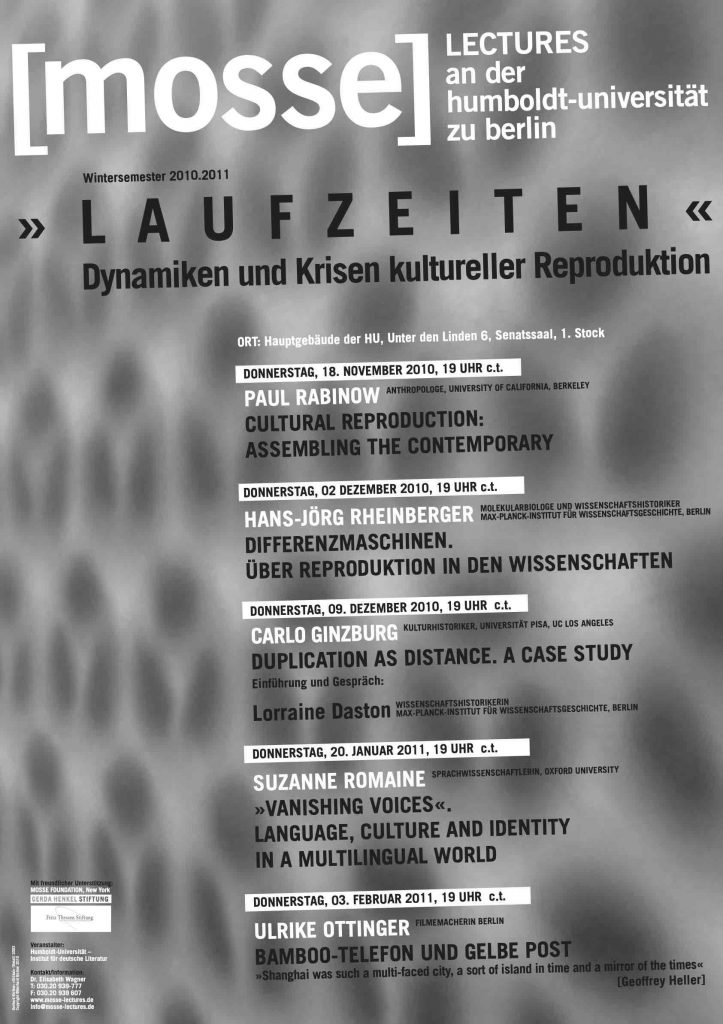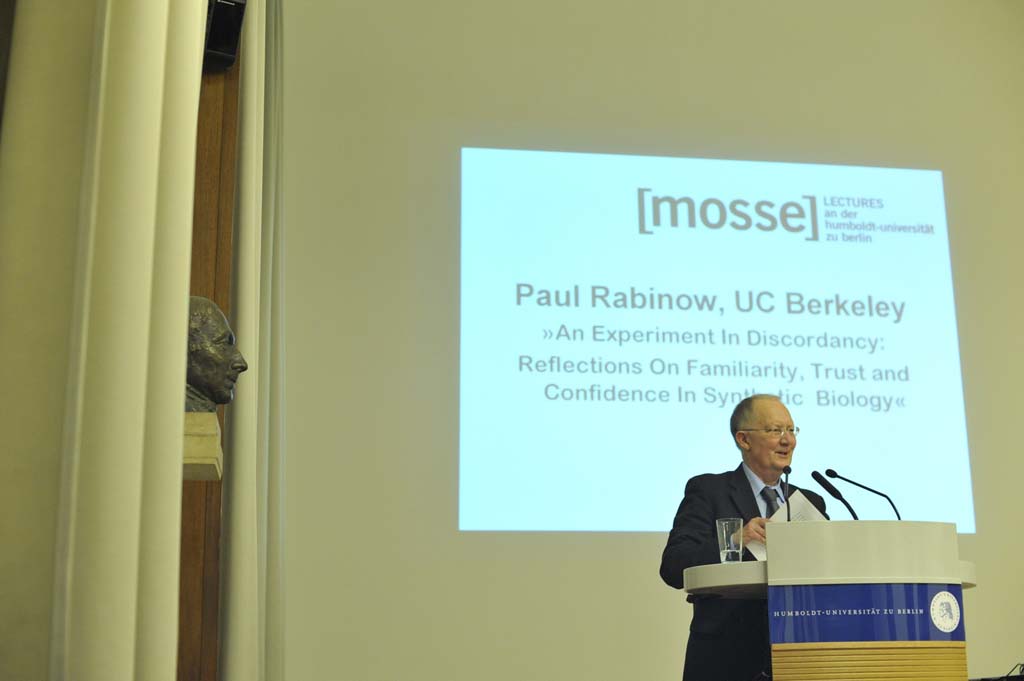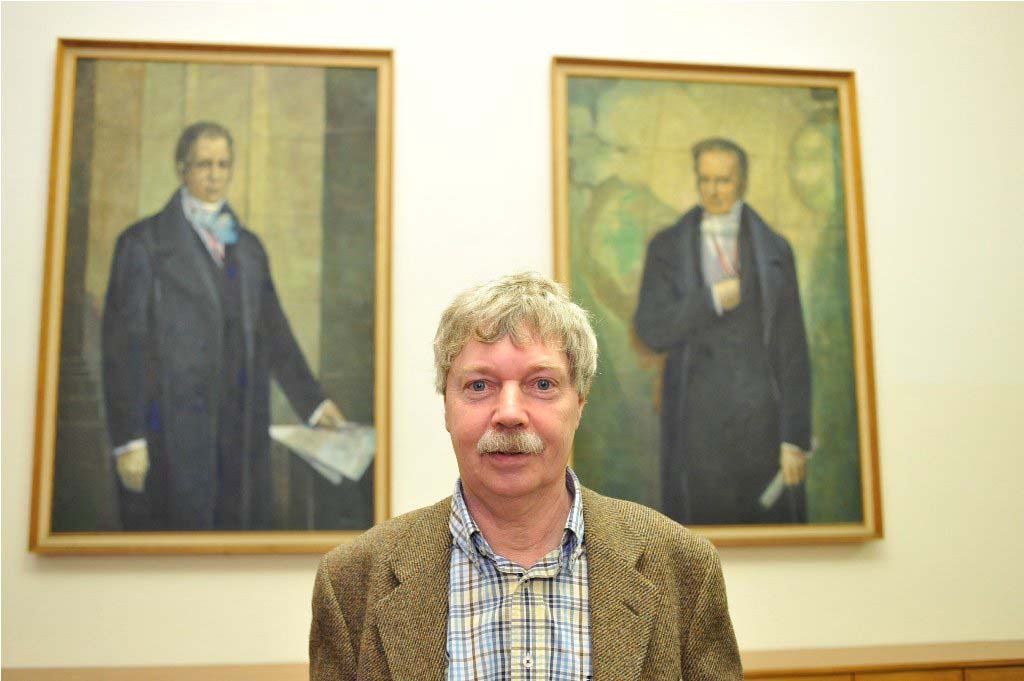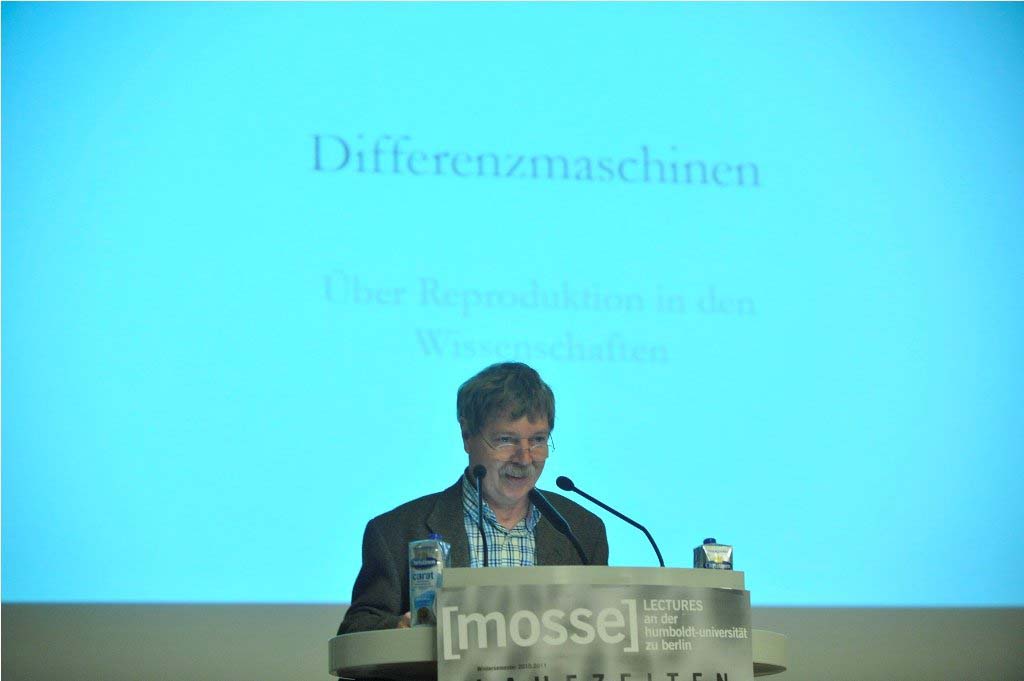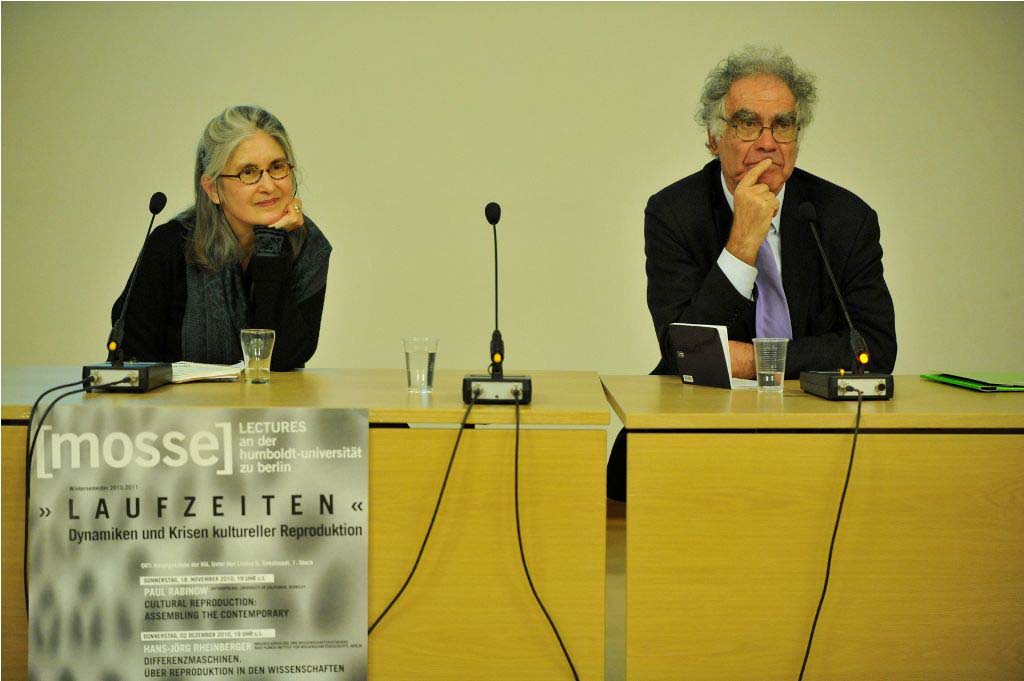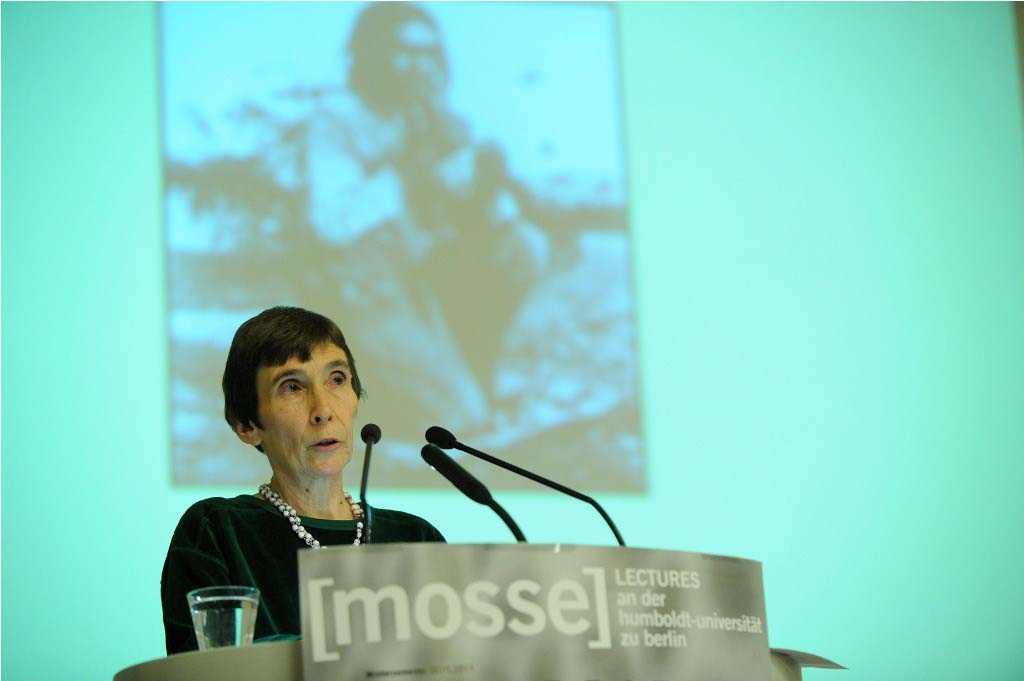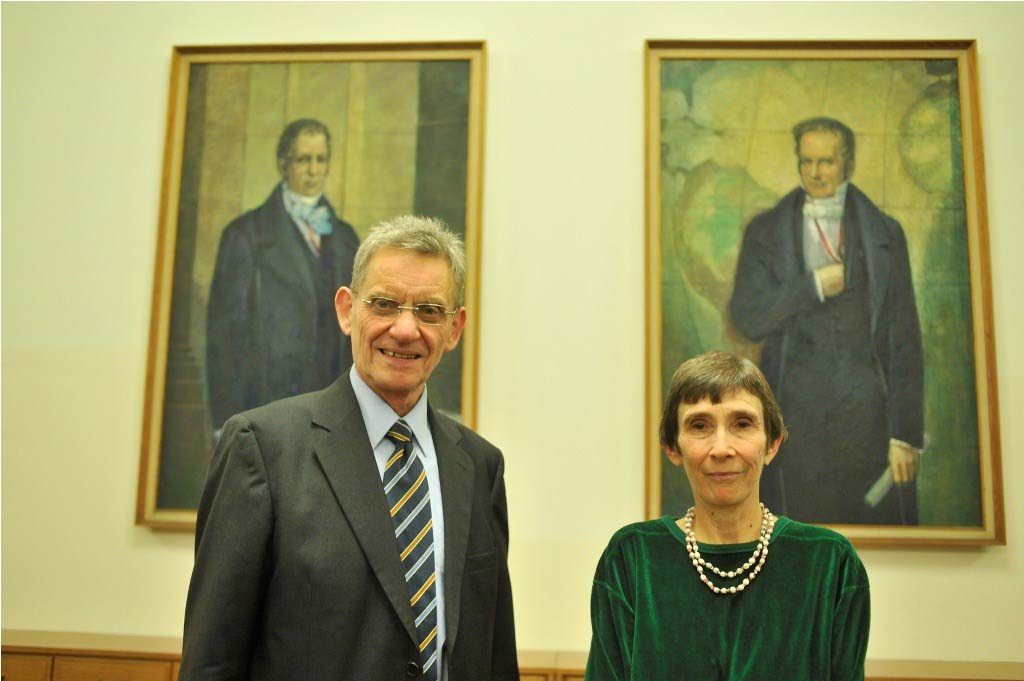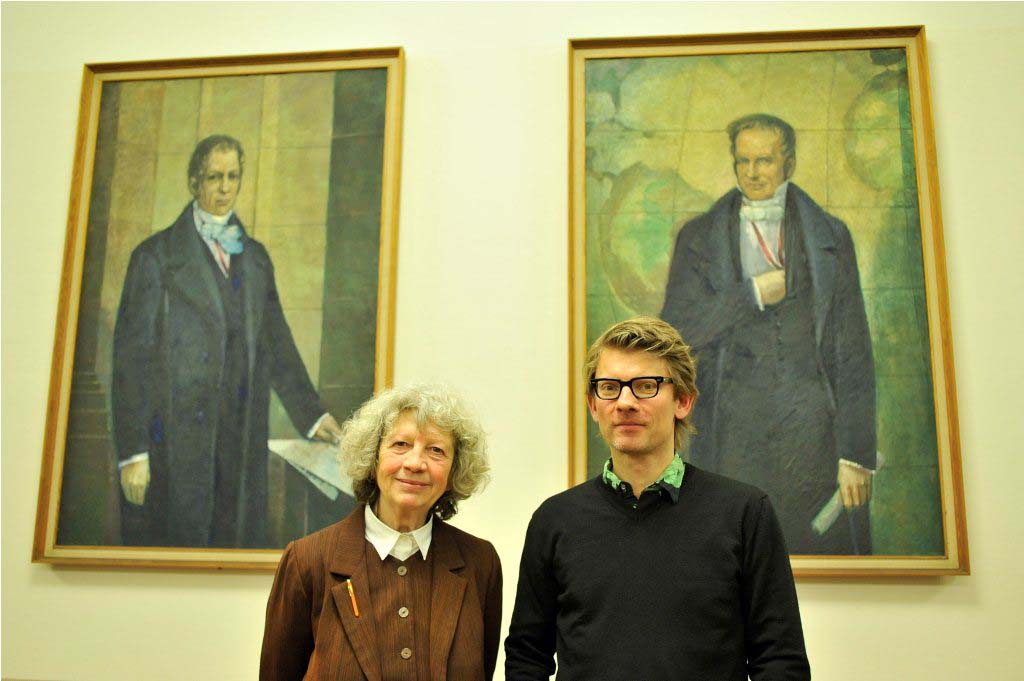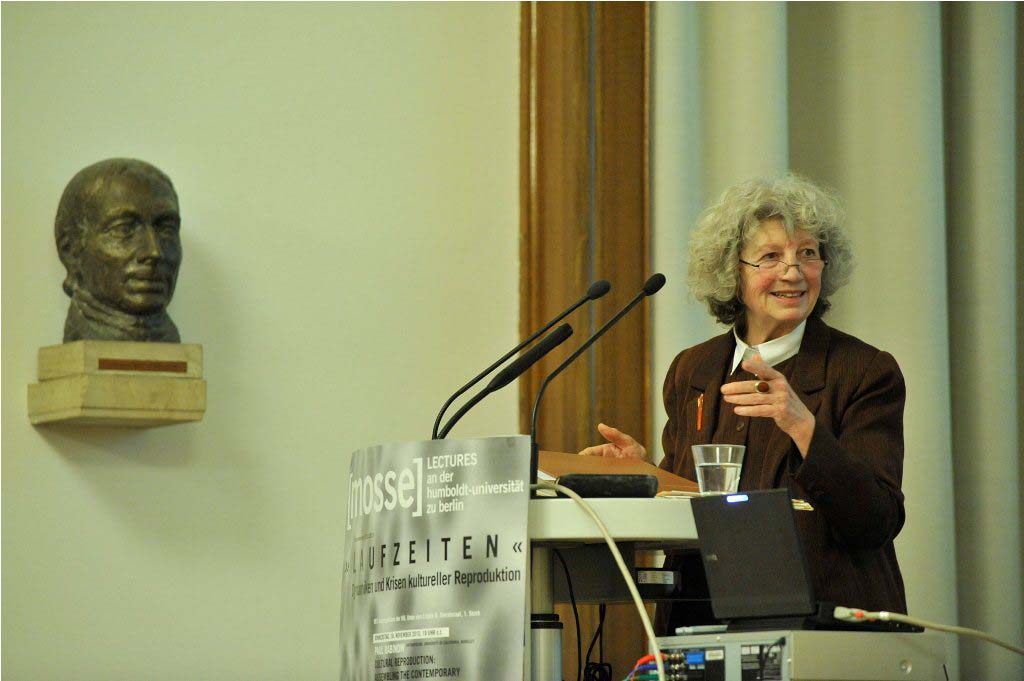In times of global economic crisis, increasing worries about the stability of states and political systems and, in view of profound demographic changes, attention focuses inevitably on processes which determine continuity and transformation of cultures, as well as their finite nature and downfall. What procedures, interests and institutions ensure and renew the cultural reproduction as tradition, heritage or memory? What is the role of literature and art, educational policy or – particularly relevant today – the transdisciplinary life sciences, and how do their procedures of reproduction relate to current economical and ecological circumstances? How do we act on the basis of things that have long been negotiated? Or do modern reproduction techniques detache the reproduced completely from tradition, as Walter Benjamin suggested? What are the challenges to reproducing existing systems of science and art, of legislative and religious norms? And what differential quality is intended when the anthropologist Homi Bhabha describes cultural reproduction succinctly as „always the same, but not quite“?
In a series of historical and contemporary contributions which have their focal point in the upheavals and reforms of society, the Mosse-Lectures look at the dynamics and crises of cultural reproduction. Questions range from cultural history and theory to variegated expert knowledge and current interventions and governmental practices. What role do crises and the perception of crises play for the optimization or the dissolution of social and political systems? What factors determine the duration and the transformation, the securing and the erosion of cultural units? In which way do the social, biological and symbolical processes of reproduction correspond or diverge? What historic and current forms of knowledge are invoked in each case?


